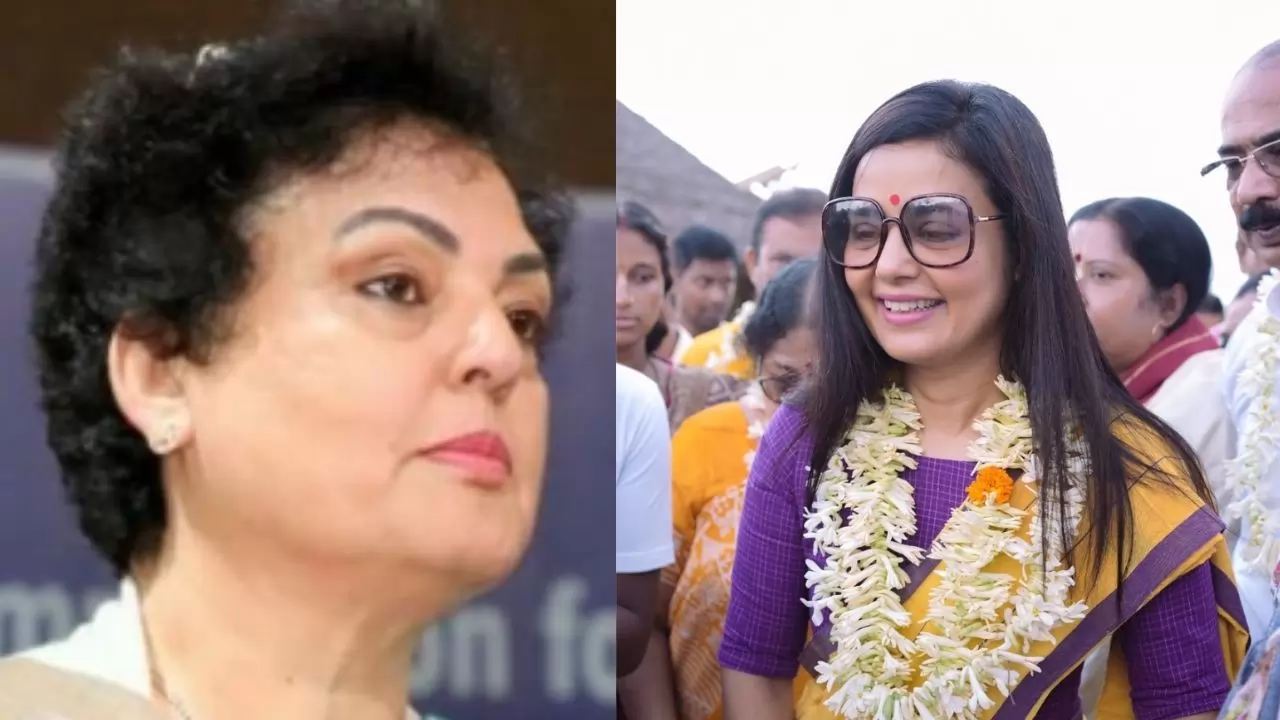
X
New Delhi: Trinamool Congress MP Mahua Moitra is facing legal trouble after a police case was filed against her under the new criminal law. The case pertains to a social media post she made about the chief of the Women's Commission, which has sparked significant controversy and legal scrutiny.
Come on @DelhiPolice please take action immediately on these suo moto orders. Am in Nadia in case you need me in the next 3 days to make a quick arrest.
I Can Hold My Own Umbrella . https://t.co/pXvRSVSzxa— Mahua Moitra (@MahuaMoitra) July 5, 2024
The police case was filed in response to a post by Mahua Moitra that allegedly contained defamatory statements about the chief of the Women's Commission. The post, which Moitra shared on her social media accounts, has been deemed offensive and in violation of the recently enacted criminal law. The law, aimed at curbing online harassment and defamation, is being invoked to address Moitra's comments.
The new criminal law under which the case has been filed was introduced to tackle the growing issue of online harassment and defamation. This law provides stringent measures to ensure that defamatory statements made online are addressed swiftly and effectively. The law aims to protect individuals from online abuse and ensure accountability for those who misuse social media platforms.
Mahua Moitra has responded to the legal action with a statement defending her post. She asserts that her comments were taken out of context and that she did not intend to defame anyone. Moitra has also raised concerns about the implications of the new criminal law on free speech and political discourse. The case against Mahua Moitra has garnered mixed reactions from the public and political circles. Some support the enforcement of the new law, emphasizing the need to curb online defamation and protect individuals from harassment. Others, however, view the legal action as an attempt to stifle political dissent and criticize the application of the law in this context.
Also @DelhiPolice while you’re at it can you please register an FIR against another serial offender under your new Act.
— Mahua Moitra (@MahuaMoitra) July 5, 2024
I Can Hold My Old Umbrella pic.twitter.com/QE6iCT0fU4
The controversy has also drawn attention to the role and responsibilities of the Women's Commission. The chief of the Women's Commission has yet to comment publicly on the matter, but the case has highlighted the challenges faced by the commission in balancing its duties with the rights of individuals to express their views.
As the case progresses, legal experts and observers are closely watching how the new criminal law will be applied. The outcome of this case could set a significant precedent for future cases involving online defamation and the use of social media. The legal proceedings are expected to unfold in the coming weeks, providing further clarity on the implications of the new law. The police case against Mahua Moitra under the new criminal law marks a critical moment in the ongoing debate over online speech and defamation. As the legal process continues, it will be important to consider the balance between protecting individuals from harassment and ensuring the freedom of expression in political discourse.





Copyright © 2025 Top Indian News
